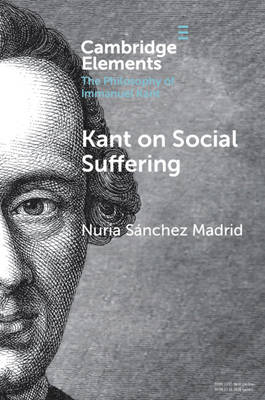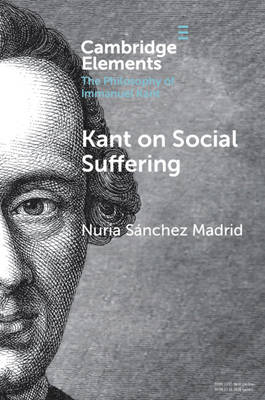
- Afhalen na 1 uur in een winkel met voorraad
- Gratis thuislevering in België vanaf € 30
- Ruim aanbod met 7 miljoen producten
- Afhalen na 1 uur in een winkel met voorraad
- Gratis thuislevering in België vanaf € 30
- Ruim aanbod met 7 miljoen producten
Zoeken
Omschrijving
This Element analyses how Kant's practical philosophy approaches social suffering, while also taking into account the elusiveness of this concept in his work, especially when viewed through a contemporary lens. It claims that Kant's theory of human dignity is a vital tool for detecting social structures in need of improvement, even if the high demands it imposes on the subject show a propensity to conceal situations of domination and oppression. In his writings, Kant investigated various societal challenges such as widespread poverty, duties towards animals, care for the mentally ill, and motherhood out of wedlock, suggesting that the state should solve most of these through financial support from the wealthier segments of society. Although the direct testimony of victims of social suffering does not play a role in Kant's approach, the author holds that he views social interdependence - including, notably, non-humans - as a fundamental commitment underpinning human development.
Specificaties
Betrokkenen
- Auteur(s):
- Uitgeverij:
Inhoud
- Aantal bladzijden:
- 74
- Taal:
- Engels
- Reeks:
Eigenschappen
- Productcode (EAN):
- 9781009446440
- Verschijningsdatum:
- 21/08/2025
- Uitvoering:
- Paperback
- Formaat:
- Trade paperback (VS)
- Afmetingen:
- 152 mm x 229 mm
- Gewicht:
- 108 g

Alleen bij Standaard Boekhandel
+ 66 punten op je klantenkaart van Standaard Boekhandel
Beoordelingen
We publiceren alleen reviews die voldoen aan de voorwaarden voor reviews. Bekijk onze voorwaarden voor reviews.








